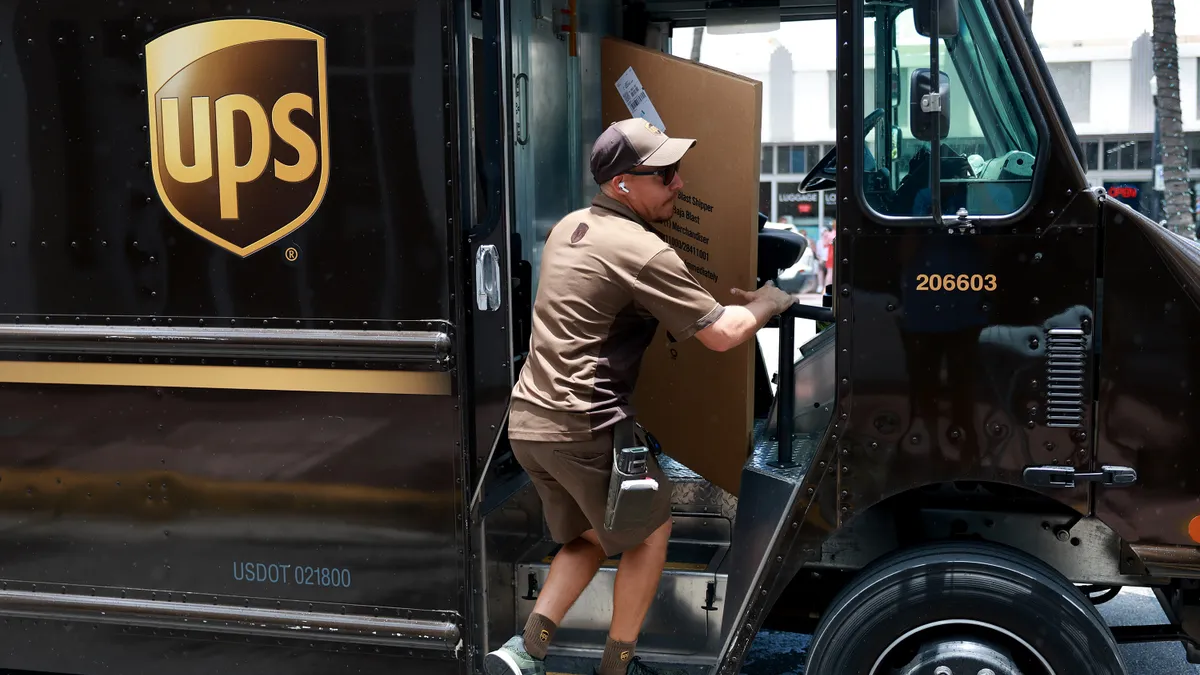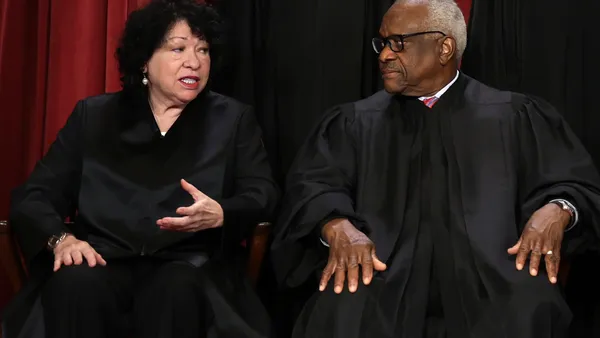Dive Brief:
- A UPS driver asked the U.S. Supreme Court Sept. 15 to decide whether the company’s move to place him on unpaid leave to accommodate his disability, rather than provide modified equipment the driver asked for, violated the Americans with Disabilities Act.
- The case, Hannah v. United Parcel Service, Inc., is on appeal from the 4th U.S. Circuit Court of Appeals, which ruled in favor of UPS in July. The court held that UPS properly concluded it could not grant the driver’s preferred accommodation and that temporary unpaid leave is a reasonable accommodation under the ADA.
- A respondent brief in opposition to the petition is due Oct. 19, according to the Supreme Court’s website.
Dive Insight:
In the petition for writ of certiorari, the employee argued the 4th Circuit erred when it concluded his request for a smaller truck to accommodate his sacroiliitis did not appropriately consider his job requirements. This “confused the equipment Petitioner used to perform the job with the job’s production standards,” the employee said.
The employee further argued that his request for a different vehicle would not have resulted in a violation of UPS’ collective bargaining agreement, nor would it have redefined his essential job functions. To that end, the 4th Circuit conflated modification of equipment with essential job functions; “No such existing precedent from this Court supports this result, which eviscerates the modification of equipment as a reasonable accommodation,” the employee said.
In its decision, the 4th Circuit noted that UPS determined that the employee’s route required the use of a larger truck, namely one with a 600-cubic-foot capacity to carry packages. Though the employee said the stiff suspension of such larger trucks aggravated his injuries, UPS maintained that a smaller vehicle “would have insufficient capacity to serve his route.” The company allowed him to retain his job and take unpaid leave until he could return to work.
The employee disputed UPS’ reasoning, writing to the Supreme Court that the company’s designated representative “could not recall any documentation to support that Respondent discussed how many packages a smaller van could hold … Nor did Respondent provide any studies, analysis or other documentation for its defense that Petitioner would not have been able to complete his deliveries with a smaller truck.”













